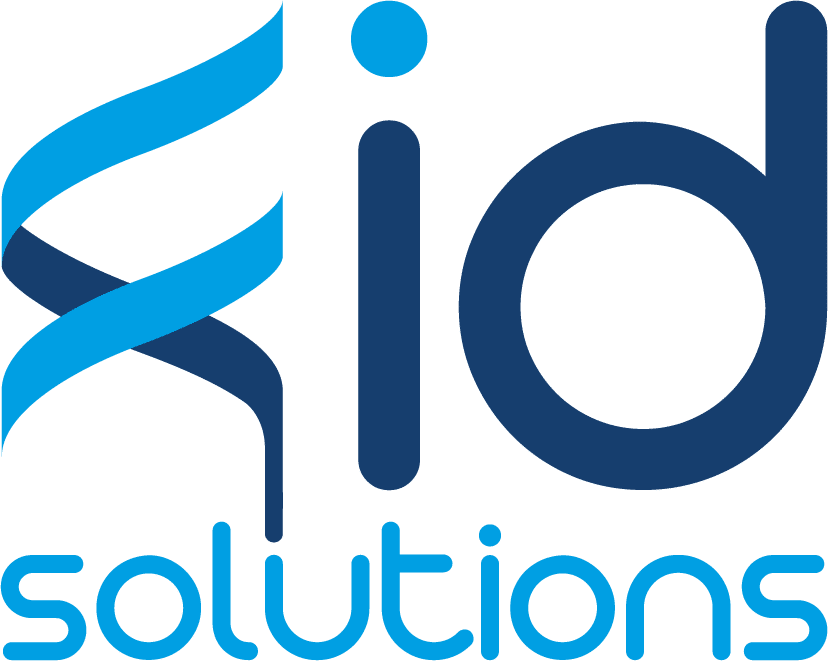Technologies
At ID SOLUTIONS, we specialize in cutting-edge technologies that drive advancements in molecular biology and diagnostics. Explore our innovative range of products and services that harness the power of modern technology to improve research, screening, and diagnostic processes. Discover how our expertise in technologies can help you stay ahead in the field of infectious diseases and human oncology.
dPCR – Digital PCR
Digital PCR is an innovative technology in the field of molecular biology. This technique enables each DNA molecule to be separated and amplified individually.
Reaction partitioning offers numerous advantages : – reduction of amplification inhibitors, particularly on FFPE samples – multiplexing without competition bias – absolute quantification – sensitivity down to 0,01 % (Reita et al. Cancers 2021; 13 (19):4926)
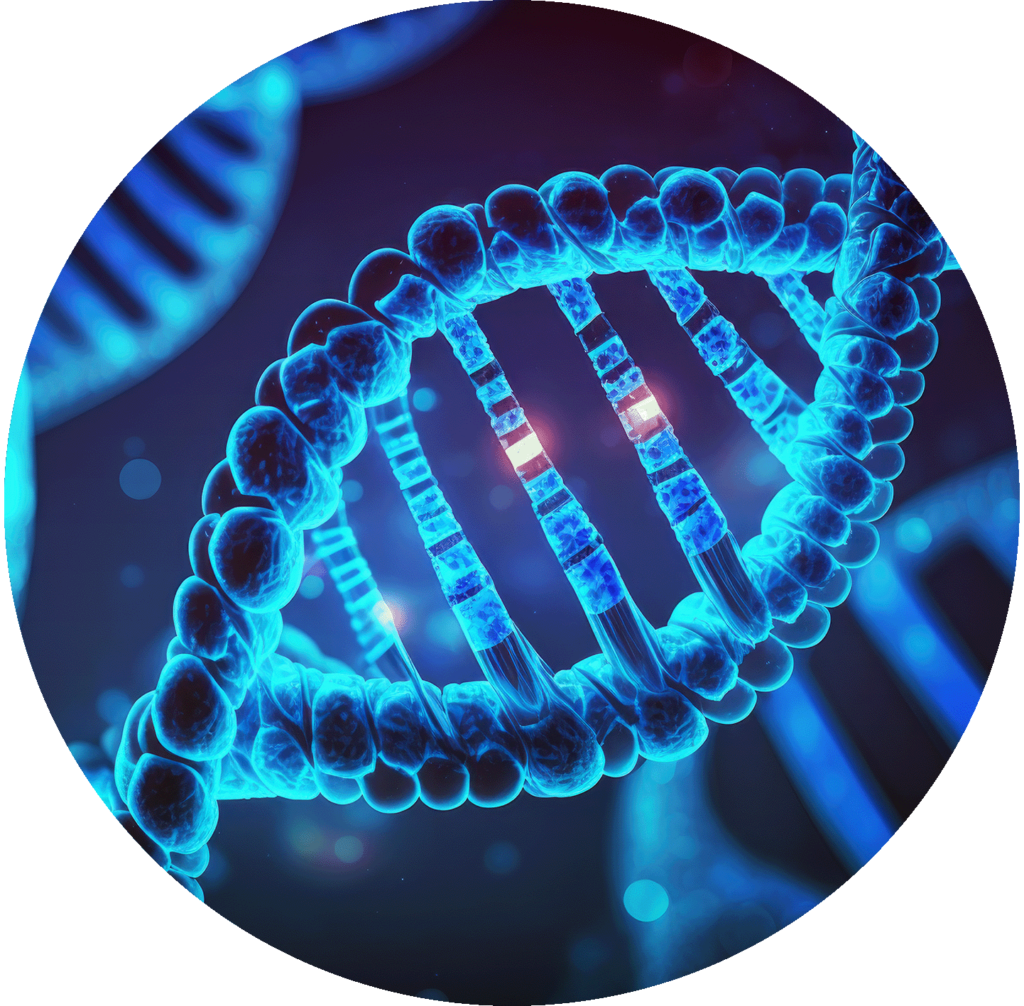
Key features
Increased sensitivity
High multiplexing capacity
Precision and specificity
Inhibitor tolerance
Examples of use / application
Thanks to this technology, it is possible to carry out precise and quantitative opening the way to numerous applications, such as diagnosis of genetic diseases, the detection of pathogens or the study of genetic heterogeneity in tumors.
Digital PCR thus opens up new prospects for medical research and personalized medicine.
Workflow for the digital PCR method
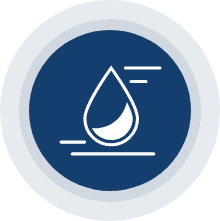
Step 1 :
Sample deposit
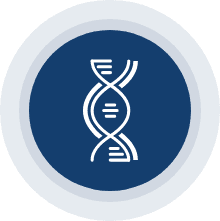
Step 2 :
DNA partitioning
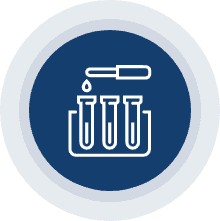
Step 3 :
Sample amplification

Step 4 :
Analysis of results / Droplet reading
(Manipulation and results obtained in ½ day)
qPCR - real-time PCR
Infectiology
Real-time quantitative PCR, commonly known as qPCR, is an advanced molecular biology method for the relative quantification of target nucleotide sequences.
By exploiting the kinetics of real-time amplification, qPCR measures the increase in specific fluorescence with each cycle, directly reflecting the amount of DNA or RNA amplified. This fluorescence is generally produced by intercalants, or by specific fluorescent probes.
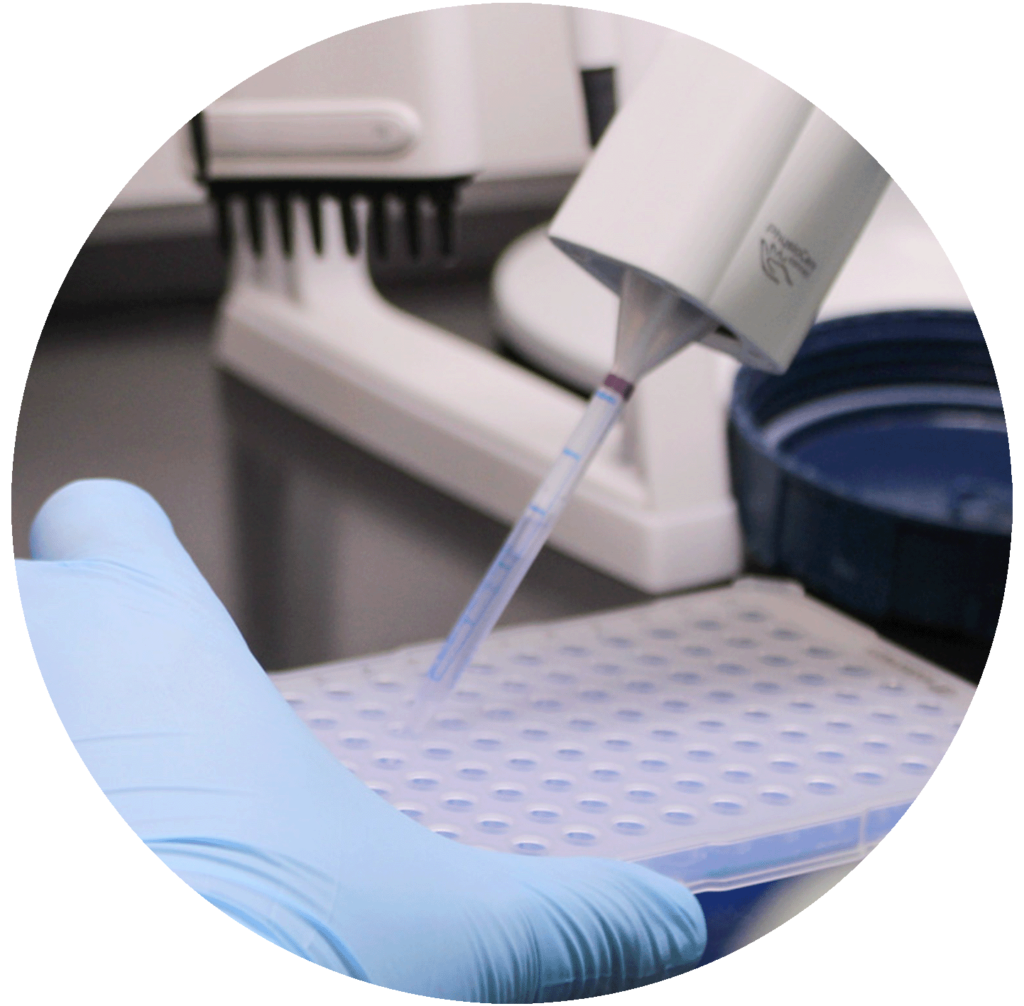
Key features
Easy to use
High multiplexing capacity
Ready to use
Fast
Examples of use / application
qPCR is essential not only for assessing variations in gene expression, but also for the precise detection and quantification of specific nucleotide sequences in a variety of samples, from clinical to environmental.
Gene expression studies : to identify up- or down-regulated genes in different conditions or tissues.
Mutation detection: used to identify specific mutations, such as those associated with drug resistance or hereditary diseases.
Validation of sequencing data: following high-throughput sequencing analyses, qPCR can be used to validate the genetic variations detected.
Pathogen quantification: used to detect and quantify pathogens, such as viruses or bacteria, in patient samples.
Real-time PCR workflow
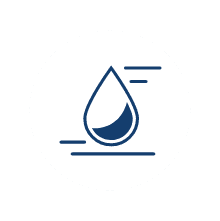
Step 1 :
Sample deposit
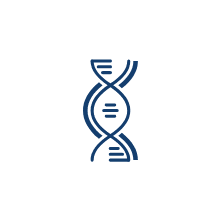
Step 2 :
DNA extraction
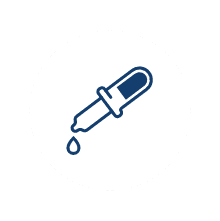
Step 3 :
PCR setup
Adding reagents
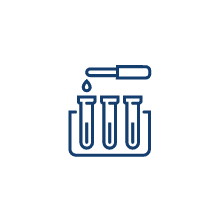
Step 4 :
Sample amplification

Step 5 :
Analysis of results
(Manipulation and results obtained in ½ day)
